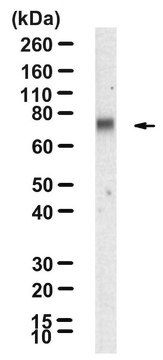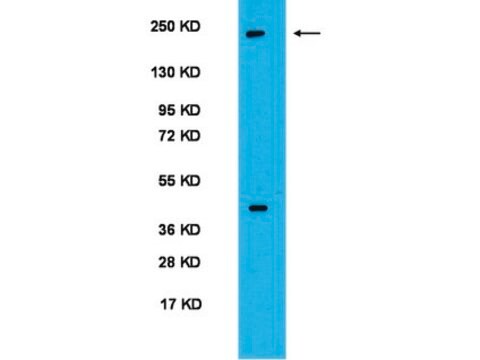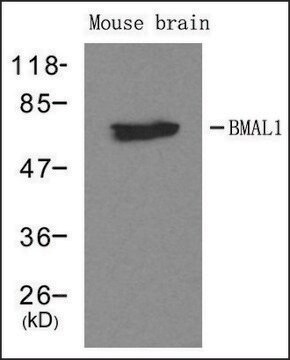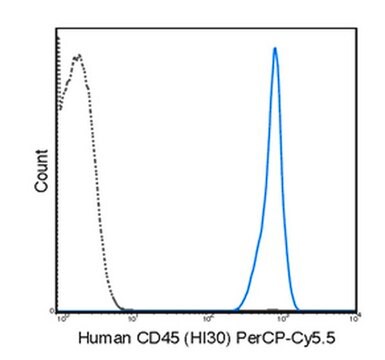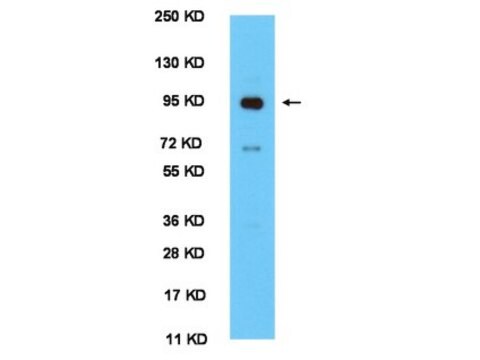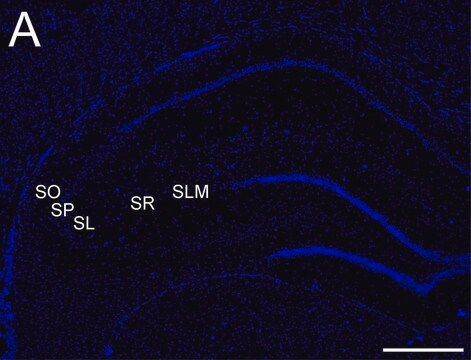AB2204
Anti-BMAL1 Antibody
serum, from guinea pig
Synonym(s):
ARNT-like protein 1, brain and muscle, Basic-helix-loop-helix-PAS protein MOP3, Brain and muscle ARNT-like 1, member of PAS protein 3, aryl hydrocarbon receptor nuclear translocator-like, bHLH-PAS protein JAP3, basic-helix-loop-helix-PAS orphan MOP3 2, m
About This Item
Recommended Products
biological source
guinea pig
Quality Level
antibody form
serum
antibody product type
primary antibodies
clone
polyclonal
species reactivity
mouse, human, rat
technique(s)
western blot: suitable
NCBI accession no.
UniProt accession no.
shipped in
wet ice
target post-translational modification
unmodified
Gene Information
human ... ARNTL(406)
mouse ... Arntl(11865)
rat ... Arntl(29657)
General description
Specificity
Immunogen
Application
Neuroscience
Circadian Rhythm & Sleep
Quality
Lot Specific Tested Application 1: Western Blot
Target description
Physical form
Storage and Stability
Analysis Note
C2C12 Tissue lysate
Disclaimer
Not finding the right product?
Try our Product Selector Tool.
Storage Class Code
10 - Combustible liquids
WGK
WGK 1
Certificates of Analysis (COA)
Search for Certificates of Analysis (COA) by entering the products Lot/Batch Number. Lot and Batch Numbers can be found on a product’s label following the words ‘Lot’ or ‘Batch’.
Already Own This Product?
Find documentation for the products that you have recently purchased in the Document Library.
Our team of scientists has experience in all areas of research including Life Science, Material Science, Chemical Synthesis, Chromatography, Analytical and many others.
Contact Technical Service